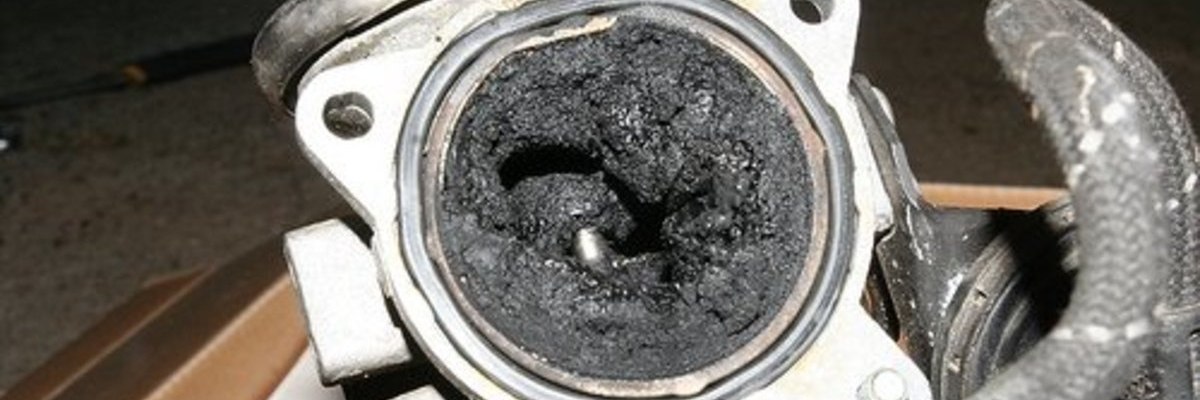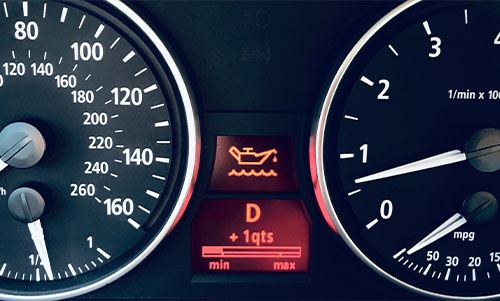The EGR valve plays a vital role in regulating exhaust emissions and is a necessary component in countries and cities with strict emissions regulations in place. But what is it and what happens when it isn’t working properly? Our latest post gets to grips with why the EGR valve is so important as well as covering the most common symptoms of a faulty EGR valve.

The EGR Valve
For combustion to occur in your car, it is necessary to draw in the air (which is approximately 80% nitrogen and 20% oxygen) from outside of the vehicle. The air combines with fuel and ignites in the combustion chamber where temperatures reach over 1370°C.
At this high temperature, inert nitrogen is naturally present in air burns creating oxides of nitrogen (NOx). NOx is one of the main pollutants from cars and is known to cause human health problems such as respiratory issues.
To reduce the amount of NOx pollutants emitted from your vehicle, exhaust gases need to be cooled before being emitted from your vehicle. In order to achieve this, they are introduced back into the combustion chamber via the exhaust gas recirculation (EGR) valve; this reduces the temperature and thereby inhibits the production of NOx emissions.
The EGR valve is fairly simple when it is open exhaust gases are allowed through the EGR system to help control vehicle emissions, whereas when the valve is closed exhaust gases can’t pass through the EGR system.
Operationally this means that when the engine is first started the valve stays in a closed position. As you speed up and the engine reaches its operating temperature the valve gradually opens, however, should you slow down or stop the valve will gradually close.
This happens continually throughout your journey to ensure recirculation only occurs when the car is at a working temperature. This helps to ensure the car maintains fuel efficiency and emits fewer emissions.
There are two types of EGR valves: vacuum-operated and electronically controlled. A vacuum-operated EGR valve is usually only found in older vehicles. It is a straightforward system that utilises a vacuum to switch the EGR valve from closed to open. The vacuum is often regulated by a computer-controlled solenoid.
Most modern cars utilise an electronically controlled EGR which is controlled by the vehicle’s engine control module (ECM). The ECM receives inputs from various sensors throughout the vehicle to determine the prime position of the EGR valve throughout your journey.

What are the symptoms of a failing EGR valve?
A faulty EGR valve can cause problems with the flow and operation of the EGR system leading to performance issues including a reduction in power, reduced acceleration and decreased fuel efficiency. It can also cause vehicle emissions to increase.
EGR valves can become stuck ‘open’ or ‘closed’ due to a build-up of soot particles, carbon deposits and dirt from fuel. Motorway driving conditions are the most favourable to your EGR valve as longer, faster journeys allow the engine to get hot enough to get rid of carbon deposits. Whereas urban driving conditions can allow these deposits to build up.
EGR valve symptoms can vary, however, the most common symptoms of a faulty EGR valve are explored below:
Your engine has a rough idle
A rough idle when starting your vehicle or during brief stops (i.e. low engine speeds with a warmed-up engine) can be caused when the EGR is constantly open and a continuous flow of exhaust gases goes into the intake manifold.
Your car has poor performance
Poor performance can be caused when the valve is open or closed. The incorrect function of the EGR valve can cause the erratic performance of your vehicle.
You have increased fuel consumption
Increased fuel consumption is caused when the valve is constantly open. This is because the temperature is lower so fuel does not burn at the optimal temperature and as a result is less efficient.
Your car frequently stalls when idling
Stalling when the engine idles like a rough idle is usually caused when the EGR valve is permanently open and is constantly letting exhaust gases into the EGR system.
You can smell fuel
You can usually smell fuel if there is a continuous flow of exhaust gases into the intake manifold because at low revs, not all the fuel burns. This means the amount of hydrocarbon gases emitted from the tailpipe increases significantly producing a fuel smell.
Your engine management light stays on
Your engine management light may stay on once your car detects an issue with the EGR valve. This could be caused when the EGR is either constantly closed or open. However, it is worth noting that usually the EGR valve starts to degrade before it fails completely and the engine management system may not pick up on it until it actually fails. Therefore it is worthwhile looking out for the other signs and symptoms mentioned.
Your car produces more emissions
When your EGR valve isn’t working correctly more emissions will be emitted. As aforementioned if the valve is stuck open the temperature is lowered which prevents all the fuel from burning. This means an increased flow of unburned hydrocarbon gases coming out of the tailpipe.
While if your valve is always closed the high temperatures in the combustion chamber allow the excessive formation of NOx gases.
You hear knocking noises coming from the engine
Knocking noises from the engine can be caused if the EGR is constantly closed. This is because at low rpm the fuel ignites early when it meets the high temperature. Detonations are also common as a second ignition can occur after the normal ignition.
Could it be something else?
Some of the same engine performance problems which are indicative of an EGR valve failure can also indicate problems in other parts of the system. This can include faulty spark plugs, spark plug wires, fuel filters, fuel pump regulators or engine sensors.
Some of the most common problems are detailed below:
Increased hydrocarbon emissions can be a result of a leaking fuel injector, bad injection timing, bad cylinder compression or a bad oxygen sensor.
An increase in NOx could be caused by a vacuum leak, a clogged fuel injector, low fuel pressure or a leaking head gasket.
Rough idle can also be a result of a faulty ignition coil, a vacuum leak or a problem with the ignition system.

What to do if you think you have a bad EGR valve?
If your car is displaying any of the EGR valve symptoms mentioned and you suspect that you have a faulty valve then it is advisable to get your vehicle checked out by a qualified mechanic. EGR faults can be easily diagnosed using the correct diagnostic equipment.
At Stoneacre we have all the latest diagnostic tools and equipment, as well as a team of highly trained technicians, making us well-placed to diagnose and treat any EGR valve problems.
Some manufacturers may recommend changing an EGR valve at pre-determined intervals. This information, if provided by the manufacturers will be included in your car’s manual, and should be adhered to in order to keep your car running at its best!